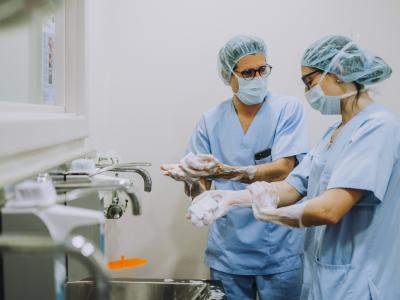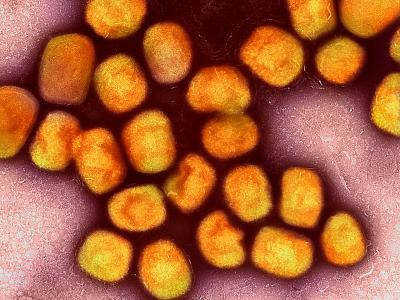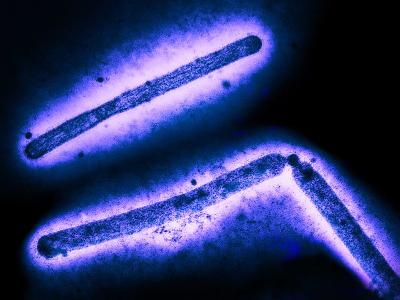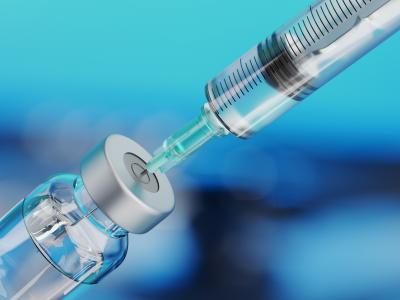H5N8 strikes again in Italy, South Africa, UK
The World Organization for Animal Health (OIE) reported three new highly pathogenic H5N8 avian influenza outbreaks on turkey farms in Italy's Lombardy region.
H5N8 was detected on Aug 4 at three commercial farms in the Medole area, which is in the northwestern part of Italy. The report said 94,700 birds are slated for culling.
Late last week, the OIE said highly pathogenic H5N8 was found in samples from 10 mallards found dead in a fishing pond in Lombardy.
Aug 7 OIE report on H5N8 in Italy
Elsewhere, South Africa reported two more H5N8 outbreaks, according to a separate OIE report. The virus was detected at two commercial farms on Aug 4 in Gauteng province in the north central part of the country. The virus killed 2,010 of 107,000 susceptible birds, and the survivors are to be destroyed to help curb the spread of the virus.
Aug 7 OIE report on H5N8 in South Africa
And finally, the United Kingdom today reported a H5N8 detection in a mute swan found dead on Jul 27 at a nature park in the city of North Norfolk in Norfolk county in the east of the country, according to an OIE notification today.
Aug 7 OIE report on H5N8 in the UK
Study: Macrolide-resistant M pneumoniae on the decline in Japan
A new study in Emerging Infectious Diseases reports that the prevalence of macrolide-resistant Mycoplasma pneumoniae in Japan was as high 82% in 2012 but has declined in the following years.
In the study, Japanese researchers investigated 1,448 nasopharyngeal swab samples and sputum samples from children who were treated for respiratory tract infections caused by M pneumoniae from January 2008 through December 2015. In general, M pneumoniae infection is a mild illness that is most common in young adults and school-aged children; outbreaks tend to occur mostly in crowded environments, like schools. An M pneumoniae pandemic occurred in Japan during 2010-2012, especially among children, and a rise in macrolide-resistant infections has been documented during that pandemic. The purpose of the study was to investigate macrolide resistance after the pandemic.
The researchers found that the overall prevalence rate of the macrolide-resistant M pneumoniae during the study period was 70.2% (1,016 of 1,448 samples). When divided into three time periods (pre-pandemic, pandemic, and post-pandemic), the overall rate of macrolide-resistant M pneumoniae was substantially lower in the post-pandemic period than in the pandemic period. After a peak of 81.6% in 2012, macrolide-resistant M pneumoniae decreased to 65.8% in 2013, 59.3% in 2014, and 43.6% in 2015.
By comparison, the prevalence of macrolide-resistant M pneumoniae infections is 13.2% in the United States, 8.3% in France, and 3.1% in Germany, which could reflect differences in macrolide prescribing among countries. The authors of the study say careful, continuous monitoring of macrolide-resistant M pneumoniae infection rates in Japan and other countries is needed.
Aug 4 Emerg Infect Dis dispatch
Ivory Coast reports growing dengue outbreak
The World Health Organization (WHO) reported late last week that Ivory Coast's capital city, Abidjan, is experiencing a dengue outbreak. As of Jul 11, there have been 623 suspected cases, including 2 deaths.
The first dengue cases were reported in April, but the WHO said that the trend of suspected cases is growing. Between Jun 27 and Jul 4, there were 37 new cases; between Jul 4 and 11, 142 new suspected cases were reported. Of lab-confirmed cases, about two-thirds are dengue serotype 2 and about one-third are dengue serotype 3.
Coinfection with yellow fever has been suspected in 68 cases and confirmed in 1 case. The majority (54%) of patients are female, and 27% are between the ages of 15 and 29 years. Fifty-five percent are over the age of 30.
A long rainy season and high density of mosquito breeding sites are the main risk factors for this continuing outbreak, the WHO said.
Aug 4 WHO update
Americas countries report more chikungunya cases
Countries in the Americas reported 697 more suspected, confirmed, and imported chikungunya cases last week, most of them from Panama, which added 4 week's worth of cases, the Pan American Health Organization (PAHO) said in its latest regular update.
The weekly total of new cases is down steeply from the 51,000 reported in the region the previous week. That report reflected a major update from Brazil, which continues to be the hardest hit country in the Americas.
Besides 607 additional infections reported from Panama in the current update, a handful of other countries reported small numbers of new cases, including El Salvador, Colombia, and Peru.
The region has now reported 141,266 cases in 2017. The number of deaths held steady at 51.
Since the outbreak began in the Caribbean part of the Americas in 2013, the region has now reported 2,527,977 cases.
Aug 4 PAHO update















